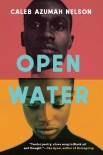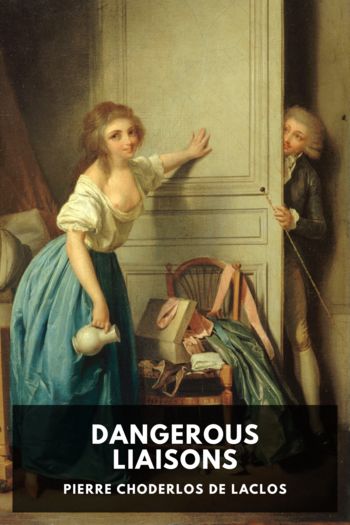Open Water, Caleb Nelson [best summer books txt] 📗

- Author: Caleb Nelson
Book online «Open Water, Caleb Nelson [best summer books txt] 📗». Author Caleb Nelson
17
She spends the week apartment hunting in Dublin. She’s left it late; only a few weeks of the summer remain. You don’t talk about what happened, not really. But what more is to be said that your bodies did not? You do however, from a distance, fall into a rhythm like it is easy.
On her return, you’re waiting at the airport, sat atop the empty help desk. Legs swinging like a joyous child. She strides through the evening, and she waves. You wave back, your heart swelling at this small gesture.
You said to trust is not to fill time, but you would like to say to trust is to fill that time with each other. The heart does the same, in the immense darkness of the body, filling with blood, clenching it out, tight as stiff fist with nothing in hand. You fill time, clutching onto it as it leaves you. Clutching after each other in the moments you must separate. In between the weekly shops, the mind-numbing television, cooking, cleaning, reading. Perched separately, but together, you often find yourself close to the balcony as it rains, heat breaking in thunder and lightning, like snare hits and hi-hats.
You’re like a pair of jazz musicians, forever improvising. Or perhaps you are not musicians, but your love manifests in the music. Sometimes, your head tucked into her neck, you can feel her heartbeat thudding like a kick drum. Your smile a grand piano, the glint in her eye like the twinkle of hands caressing ivory keys. The rhythmic strum of a double bass the inert grace she has been blessed with, moving her body in ways which astound. A pair of soloists in conversations so harmonious, one struggles to separate. You are not the musicians but the music.
18
It’s one thing to be looked at, and another to be seen.
‘Can I?’ you ask, holding up your camera. You spend a lot of time gazing through a viewfinder, in what you think of as a perfect position: the objective observer, perched in the near distance, straddling the fence between here and there. The subject is aware but not distracted from themselves. Perhaps the observer will ask the subject to turn this way or that, will ask them to show them something else – not more or less, but different. The subject acquiesces – the resistance is natural. There’s an interaction of sorts, between the pair, and this makes the portrait. The photo you’re thinking of: she gazes straight into the lens, as you’ve asked. Holding her neck for comfort. Single silver earring swinging soft from the lobe. She’s beautiful – subjective, but the bias is inevitable. The glint in her eyes you are always searching for before you depress the shutter. A moment cut from something you both struggle to describe. Something like freedom.
In a conversation with a friend:
‘I’m about to nerd out so forgive me – so my biggest influence is this British-Ghanaian painter Lynette Yiadom-Boakye, her work is dope. She paints Black figures, but all of them are made up – which when you see the detail of them is hard to believe. By doing this, she’s externalizing her interiority, which isn’t something Black people are afforded very often. At the same time, her level of craft is nuts – there’s a lot of power in mastery of a form, being able to flex within that. Then with the motion stuff, I guess I’m always trying to make things which are reflective of Black music, which, to me, is some of the greatest expression of Blackness – that ability to capture and portray a rhythm. So maybe motion is the wrong word, rhythm is better. So like this shot of her holding her face, there’s a lot of stillness to it but there’s also a peaceful rhythm in that moment captured.’
A few months before, you had attended a talk on an exhibition of Sola Olulode’s work, in a gallery in Brixton. Her paintings were expressions of joy. Blue canvases, the bodies moving freely in celebration of life. Even in the silence of a canvas, the beat is loud and physical, channelled through her subjects, the Black woman centralized in her work. Aside from the feelings the work evokes, her craft is extraordinary. The brushwork! You haven’t seen such attention to craft since Lynette –
But you’d hate to conflate, so you stay silent. It’s enough to be in this room, in this space, where those who are usually looked at, and objectified, are seen, heard; can live, laugh, breathe.
When the talk was over, you took the time to speak to both artwork and artist, marvelling at the figures struggling to be contained on the canvas, your eyes dancing across the cloth she has taken so much time and care with. You thanked her for the work and watched a sly smile spread across the face of a woman who was still wondering if she was supposed to be here, is yet to convince herself.
Still, as you parted ways, you wondered if you’re wrong, if freedom isn’t as full as you imagine – no, if freedom is not an absolute – no, try again – if freedom is something one could always feel. Or if you are destined to feel it in small moments here and there.
It’s one thing to be looked at and another to be seen. You’re asking to see her as you take her portrait, hurtling through south-east London. There, as a





Comments (0)